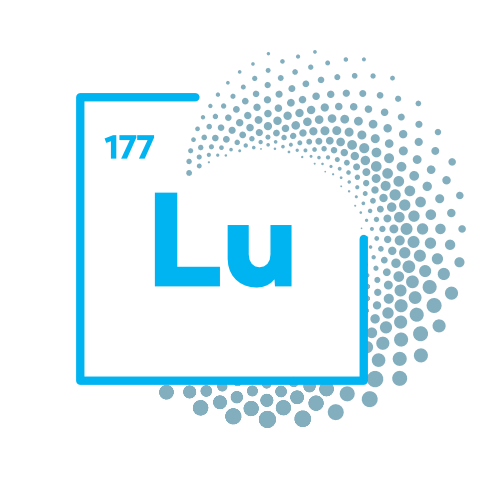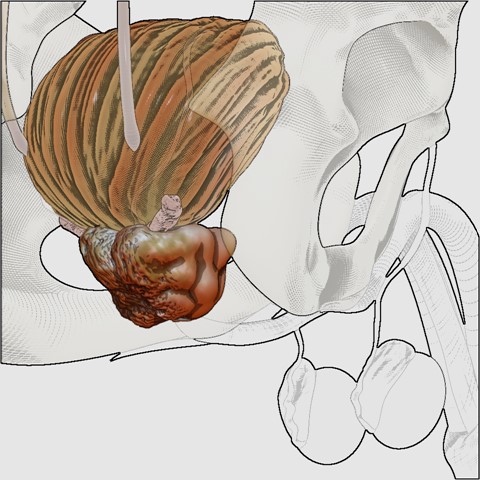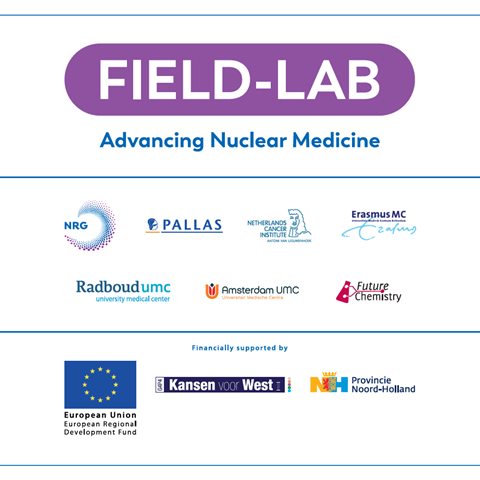FIELD-LAB
Harry Hendrikse about the future of lutetium-177
25 March 2021
The market for lutetium-177 is expected to grow significantly in the coming years. There are many products in the clinical pipeline that use lutetium-177 as radioactive substance, and we are seeing new, up-and-coming therapies. A promising agent is lutetium-177 PSMA, which acts on the prostate-specific membrane antigen and is used in the treatment of metastasised prostate cancer. In addition to prostate carcinomas, other cancers could be treated with the isotope lutetium-177 in the future. Prof. Hendrikse of Amsterdam UMC, VUmc location, foresees expanding possibilities for patient treatment despite some issues related to market availability.


Harry Hendrikse
Prof. Hendrikse, professor in clinical radiopharmacology, clinical pharmacologist and hospital pharmacist at Amsterdam UMC. Hendrikse conducts oncological research, and so far has focused on diagnostic methods. In the context of his functions as hospital pharmacist at Amsterdam UMC he is in charge of the production of radiopharmaceuticals under GMP conditions. Partly thanks to his experience with GMP production processes and the design of GMP facilities he has been appointed adviser for the designing of the FIELD-LAB facilities.
Prostate cancer
"At Amsterdam UMC, patients who are suspected of having a prostate carcinoma are administered the diagnostic agent fluor-18-DCFPyL for imaging with positron emission tomography (PET)." DCFPyL is a PSMA tracer that attaches to the surface of tumours with PSMA expression when injected into the body. Because the tracer is linked to a radioactive PET isotope, tumours become visible on the scan to doctors, enabling effective diagnosis of a prostate carcinoma. "We can produce Fluor-18 in one of our four cyclotrons at the hospital. In our GMP labs we can convert it into fluor-18-DCFPyL, for our patients as well as to supply to other hospitals."
In addition to establishing the diagnosis, Amsterdam UMC is working hard on a medicated therapy to treat prostate cancer. "Two doctoral candidates are currently researching lutetium-177 PSMA. This already exists, but we have several clinical questions that we want answered." The first batch of lutetium-177, from Petten, has been used to see how the isotope can be linked to a tracer. "The research is aimed at a theranostic approach. This means that the radiopharmaceutical can be deployed for both diagnosis and treatment. We want to be able to diagnose with F-18-DCFPyL and treat with lutetium-177 PSMA."


PSMA expression in other types of tumours
Lutetium-177 clearly has an important place in the specialism of urology, and by now it is also known that PSMA expression can likewise occur in other types of malignancies, like glioblastoma (a type of brainstem cancer) and pancreatic cancer. As a result, one of the neurosurgeons at the hospital is participating in a study researching this topic. "The prognosis of patients with glioblastoma is poor. The problem is actually that when the tumour is removed, a small residue of tumour remains. As a surgeon you do not want to remove healthy brain tissue, which would put the patient at risk of losing bodily functions." This research could lead to new therapies, deploying lutetium-177 as beta radiator for highly localised targeting of residual tumour cells. "The preliminary data are available already, and they look very promising!"
Market availability
At the moment no patients are being treated with lutetium-177 at Amsterdam UMC. "But very soon we will have enough therapy rooms to start testing lutetium-177 on patients here."
To conduct this testing, we need an isotope from the reactor in Petten. The isotope is then processed into a GMP-qualified product so that it is suitable for administration to patients. "Currently there are two major suppliers in the market, but I’m afraid that soon they will no longer be able to meet the demand for lutetium-177. At our clinic we are always searching for new ways to improve the care for our patients, but partly due to the limited availability of lutetium-177 it can sometimes be difficult for us to conduct certain trials. This is why I’m glad NRG is doing its best to make this agent available via FIELD-LAB."
FIELD-LAB came into being for and by partners with different backgrounds. Renowned Dutch academic hospitals, including Amsterdam UMC, are now part of this initiative. FIELD-LAB is working hard on a GMP process to convert lutetium-177 into LuCl3 (lutetium chloride, the basic material for medicines with the lutetium isotope). The main goal is to make this material available in small amounts for testing. In this way, FIELD-LAB wishes to be instrumental in accelerating advances in clinical research, contributing to the development of new therapies.
More information?
Do you wish to learn more on lutetium-177 and how FIELD-LAB can help you? Get in touch with us!

